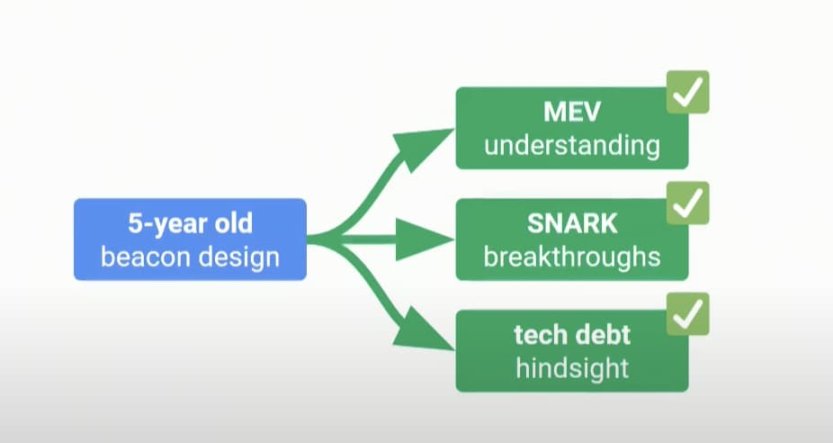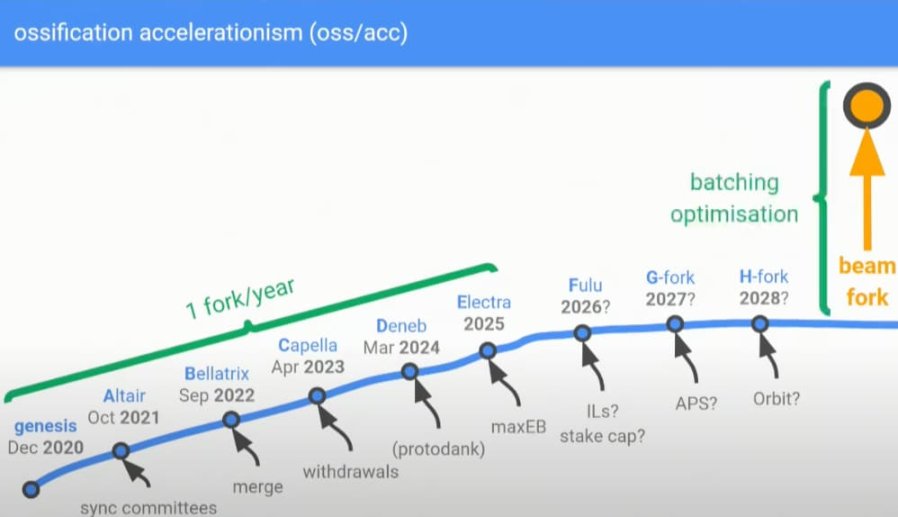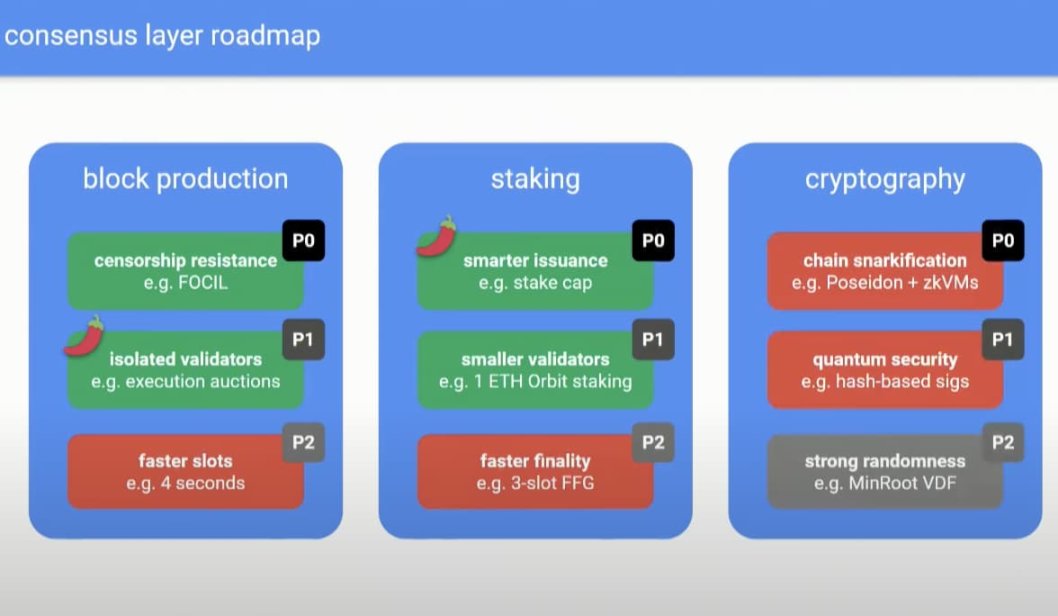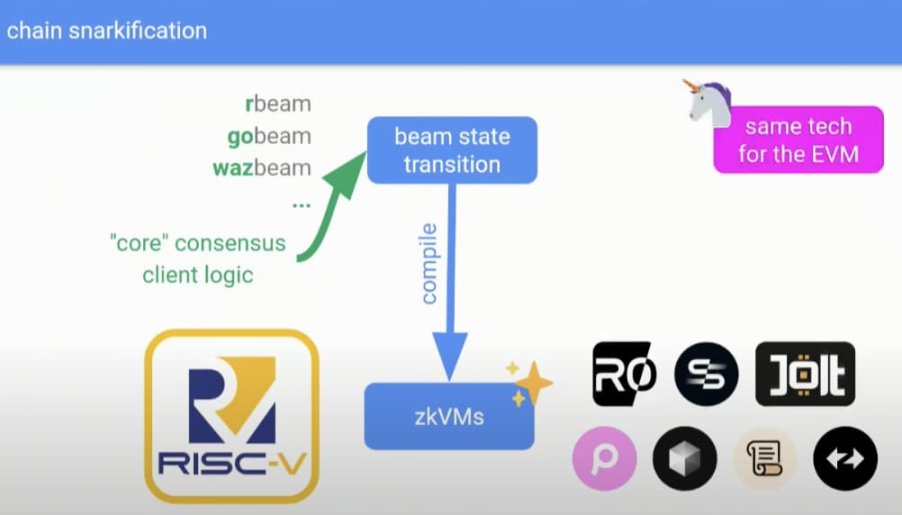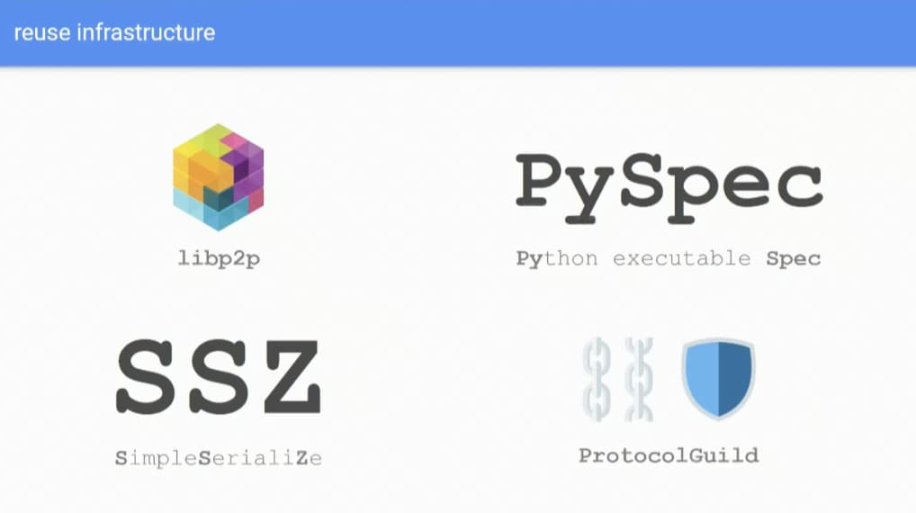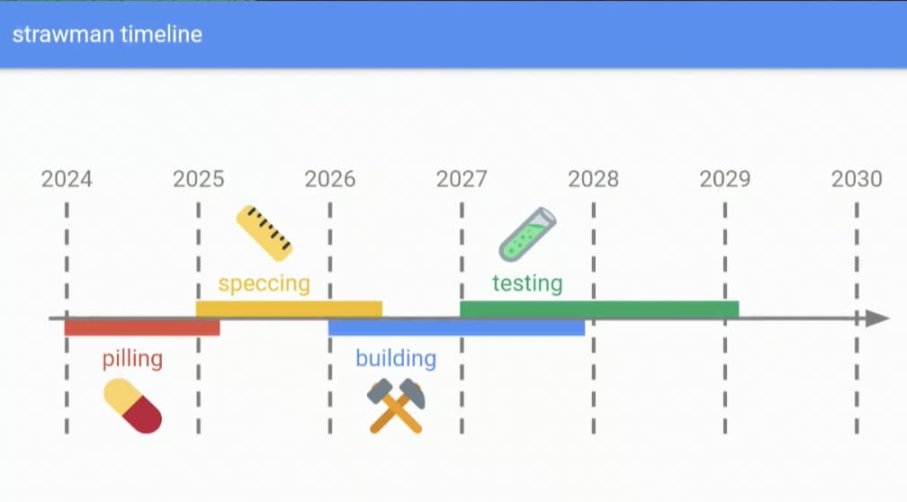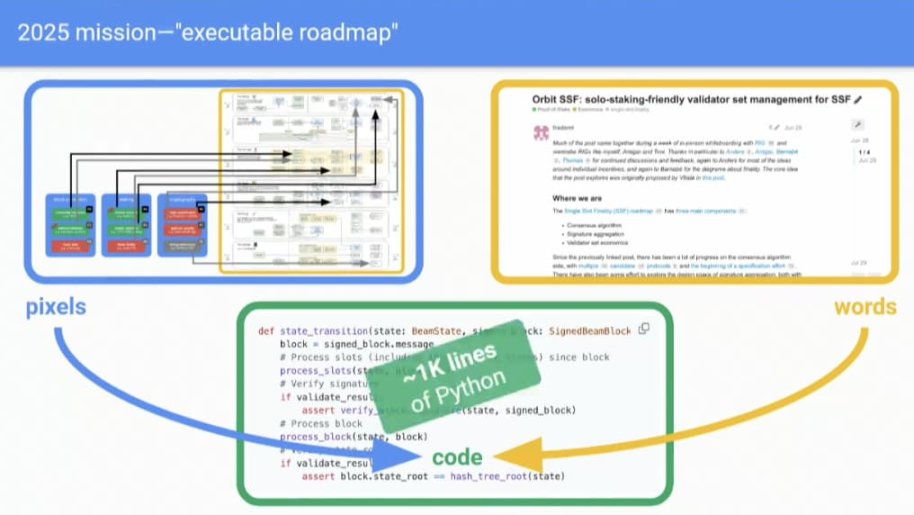Hiểu được tầm nhìn và kiến trúc kỹ thuật của Ethereum Beam Chain trong một bài viết
Organized by: Karen, Foresight News
Justin Drake, a researcher at the Ethereum Foundation, proposed the final design of Ethereum at the Devcon conference today. The core of the proposal is a large-scale redesign of the Ethereum consensus layer. He named this proposed design and fork Beam. What vision does Beam Chain carry? How is its technical architecture and implementation plan laid out?
Beam Vision
Why is it necessary to redesign the consensus layer on a large scale? Justin Drake believes that the current beacon chain is outdated and its specifications were frozen five years ago. In addition, in recent years, MEV mitigation, SNARKS (zero-knowledge succinct non-interactive argument), With so many breakthroughs in areas such as zKVMs (zero-knowledge virtual machines), a redesign of the consensus layer is particularly urgent.
First of all, it should be pointed out that since the launch of the beacon chain in 2020, Ethereum has ushered in an important fork upgrade every year. From the increase of the synchronization committee in 2021, to the completion of the merger in 2022, to the pledge withdrawal in 2023, Each step has witnessed the growth and transformation of Ethereum, including the support of the 2024 proto-danksharding. In 2025, Ethereum will implement the Electra fork, including the implementation of EIP-7251 (MaxEB). In the next few years In the future, Ethereum will also undergo some gradual forks.
However, after these incremental forks, Justin Drake believes that we may face an unprecedented challenge – the Beam fork. This is a quantum leap in the consensus layer, which can integrate (batch) multiple upgrades into In a single fork.
It is worth mentioning that Beam specifically targets the consensus layer and excludes the blob and execution layers (including EVM). This is because the opportunities to modify the blob and execution layers are quite limited. On the other hand, the consensus layer is not directly used by applications. , there is a greater opportunity for design and change.
The Beam Chain consensus layer roadmap includes three categories: block production, staking, and mật mãgraphy. In terms of block production, inclusion lists are introduced to achieve censorship resistance, decoupling the validator and block production processes, and other functions such as execution The idea of auctioning, among other things, might be able to shorten the current 12-second slot times.
In terms of staking, researchers currently widely believe that optimizing the current issuance curve has the opportunity to improve the overall health of Ethereum. In addition, reducing the amount of Ethereum staked to become a validator and achieving faster finality are also research topics. In cryptography, the focus is mainly on chain abstraction, quantum security, and strong randomness.
Beam Chain Technical Layer
Justin Drake believes that “after PoW and PoS, we may be entering the era of zero-knowledge proof of Ethereum consensus. In the ZK era, SNARKS will become an indispensable technology in this era. The entire Beam Chain, and even the entire consensus layer Anything can be SNARKed. This is where zKVM comes in handy.”
It is worth noting that the part that needs SNARK processing is mainly the state transition function, which is the core of the consensus client. All the infrastructure around the state transition function, such as networking, syncing, cache optimization or fork selection rules, etc. No SNARK processing is required. Ultimately, the state transfer function is just a subset of the entire system.
Another place where SNARKS is used extensively in Beam Chain is in aggregate signatures – using hash functions to implement post quantum aggregatable signatures. Justin Drake explained that thousands of signatures can be collected and compressed into They form a proof, and combined together they get a hash-based post-quantum aggregatable scheme that can also be aggregated multiple times.
In addition, Ethereum will continue to use existing infrastructure, including lib p2p, SimpleSerialiZe, PySpec and Protocol Guild.
Beam Chain Roadmap
Justin Drake has made a detailed plan for the launch of Beam Chain. The specification development process will start in 2025, construction will begin in 2026, and related testing will start in 2027 to ensure that Beam Chain meets production-level standards. And it can be safely deployed to the mainnet. According to the roadmap below, the mainnet deployment time may be launched after 2029 or 2030.
Justin Drake plans to start writing the executable specification next, which will eventually be reduced to about 1000 lines of Python code.
In addition, two client development teams (Zeam team in India and Lambda team in South America) have expressed interest in Beam Chain client development.
This article is sourced from the internet: Understand the vision and technical architecture of Ethereum Beam Chain in one article
Related: The Renaissance of Decentralized Finance: Making DeFi Great Again
Original article by: Arthur Cheong, Eugene Yap Original translation: Block unicorn The European Renaissance, which began in the 14th century, ignited a revival of art, culture, and thought, and completely changed modern civilization. Today, we are witnessing a similar awakening in crypto – the renaissance of decentralized finance (DeFi). Like the Renaissance in history, this movement is breaking down barriers and reshaping our understanding of money and finance. Powered by blockchain and smart contracts, DeFi democratizes financial services, giving people around the world access to a trustless economy without traditional financial intermediaries. It has the potential to completely reshape finance. Just as the European Renaissance thrived on technological advancement and social change, the DeFi renaissance is being driven by a few key factors that are helping it move beyond its…
